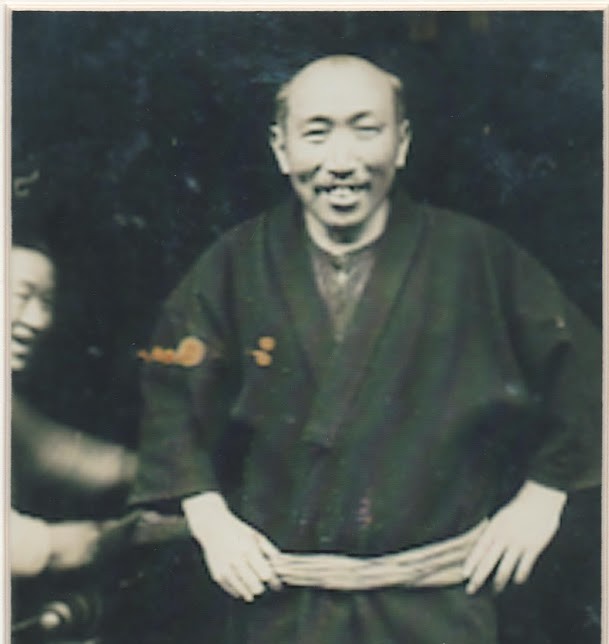
Crimson Iron,
Timeless Spirit
In 1908, master blacksmith Yusaku Hoshiba established his forge in Noto, bringing traditional wild-forging techniques to the peninsula. Crafting everything from knives to farming and fishing tools, he became essential to Noto's fishing culture.
By 1913, Yusaku traveled by cart throughout the region, forging tools tailored to each user's hands. With sake gourd at his side and folk songs on his lips, he created lasting bonds with fishermen and fellow craftsmen. He established Fukube Forge, passing his techniques through generations.

The 1st Craftsman Yusaku Hoshiba
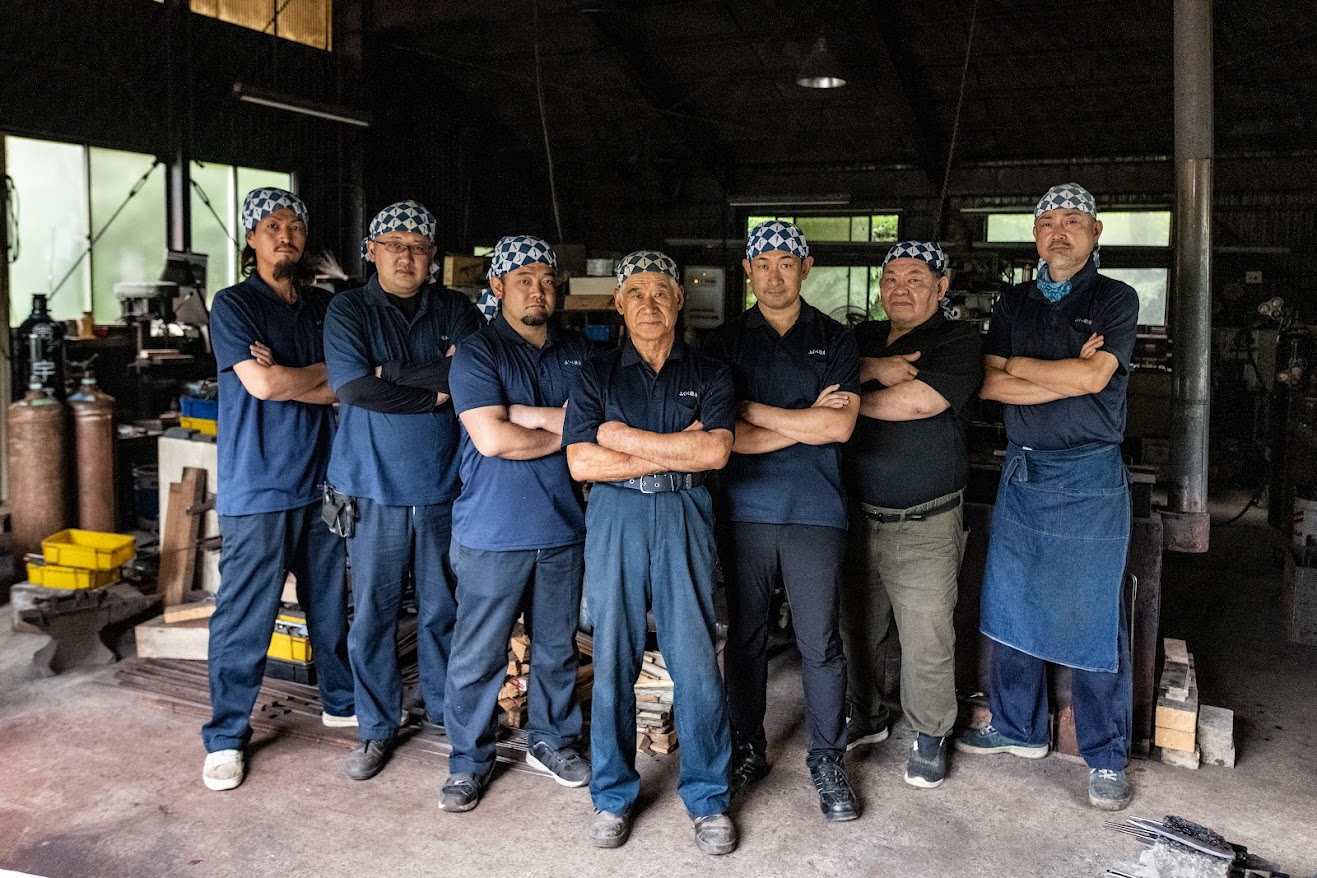
Four generations of craftsmen

The original workshop interior
Evolution of Craft
1908-1935: Foundation
Versatility defined our early years. From farm tools to fishing gear, we supported every aspect of Noto's rural life with custom-made pieces reflecting each user's specific needs.


1935-1968: Specialization
The second generation recognized the rise of Japanese culinary refinement and chose to specialize in kitchen knives, developing the distinctive Hoshiba techniques.
1968-Present: Innovation
Third and fourth generations balance tradition with innovation, maintaining hand-forging techniques while exploring new alloys and heat treatments.
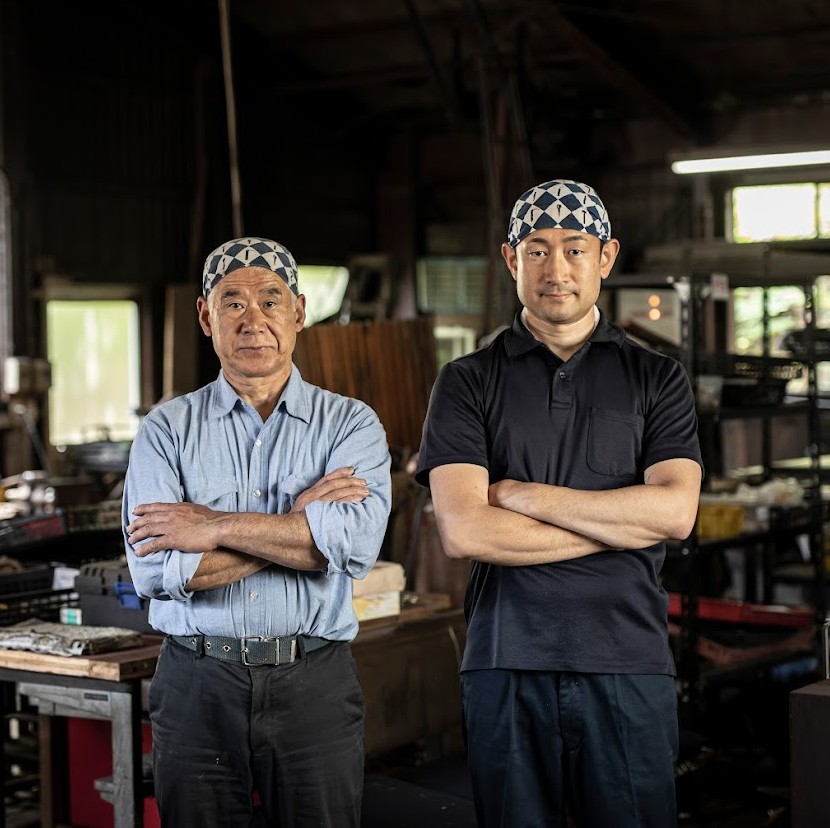
CURRENT MASTER
Fourth Generation Craftsman
Kentaro Hoshiba
Fourth Generation Blacksmith
Sustaining tradition through dedicated service
"I aim to reduce disposable practices and pass down our blacksmithing traditions for the next two or three hundred years."
Fourth-generation Nokaji blacksmith, crafting and repairing essential tools for rural life—from kitchen knives to farming implements.
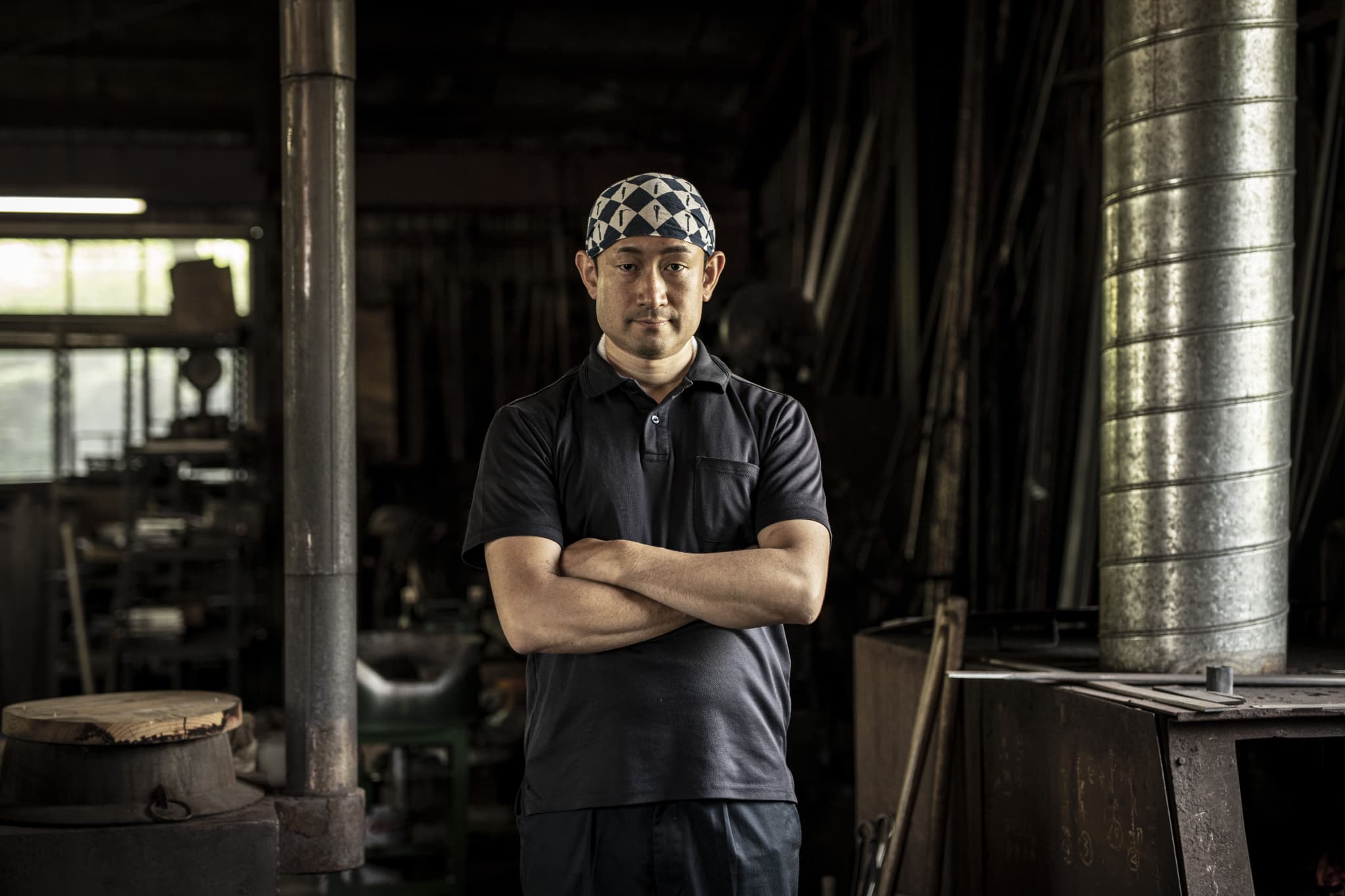
THE JOURNEY
Heritage Forged in Fire
Public Service
Post-University - 2015
After university, Kentaro joined Noto Town Hall, passionately working on regional revitalization projects.
Life-Changing Decision
Spring 2015
When his mother Kinuko passed in 2014, his father considered closing the forge. Kentaro resolved: "Without action, Noto's traditional techniques will vanish. I must preserve our forging heritage."
Mastering the Craft
2015 - 2020
Training rigorously under his father, he sharpened thousands of blades. Beginning earnest practice in 2015, he became fourth-generation master in January 2020.
HERITAGE
The Nokaji Tradition
Forbes Japan Culturepreneur 30
Selected as one of Japan's leading cultural entrepreneurs
Fukube Kaji is a traditional Nokaji forge, crafting and repairing essential tools for farming, fishing, and forestry. Only about a hundred Nokaji remain in Japan—Yusaku works to preserve this craft while adapting it for modern sustainability.
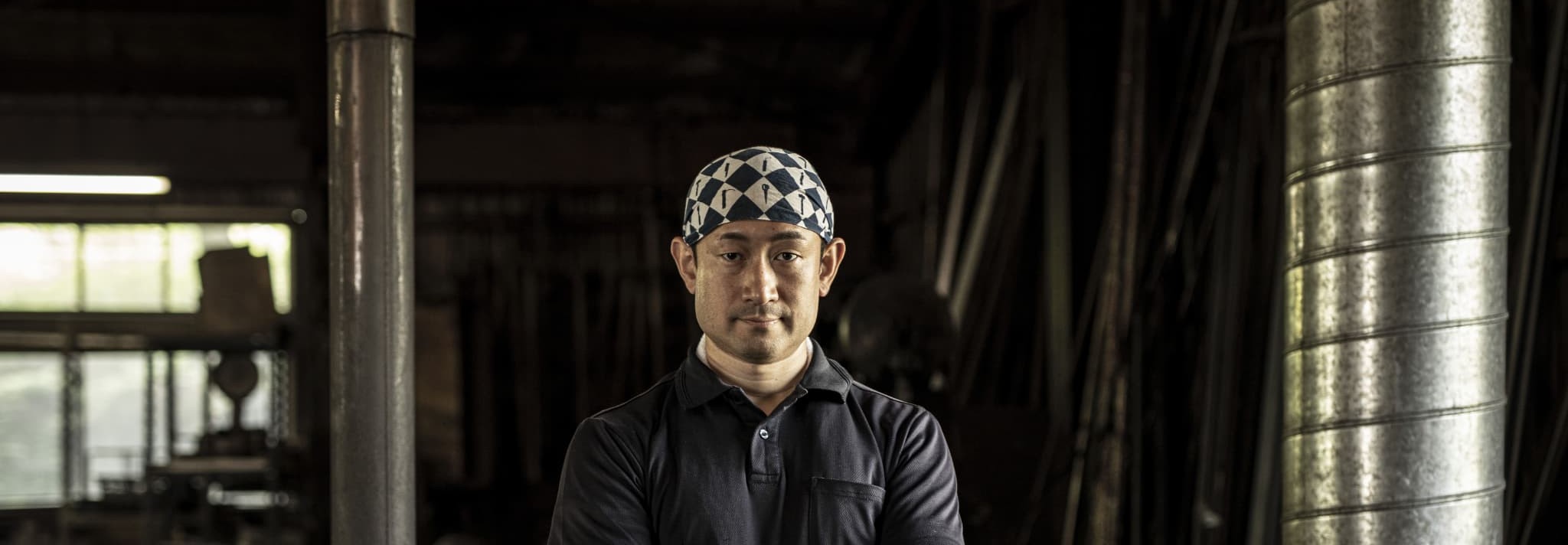
"A blacksmith transforms frustration into satisfaction. Maintaining and cherishing tools preserves our industries and traditional craftsmanship."— Kentaro Hoshiba, Fourth Generation Craftsman
The Spirit Lives On
Each blade carries within it over a century of accumulated wisdom. The rhythmic hammer strikes echo through time, connecting past masters with future generations. This is not merely metalwork—it is the preservation of a living heritage, where every knife tells the story of those who came before and promises excellence to those who will follow.
KITAERU
Strength through fire and hammer
MIGAKU
Beauty through patient refinement
TAMASHII
Spirit infused in every creation
Experience Our Heritage
Visit our workshop to witness the continuation of a century-old tradition, where ancient techniques meet modern precision.